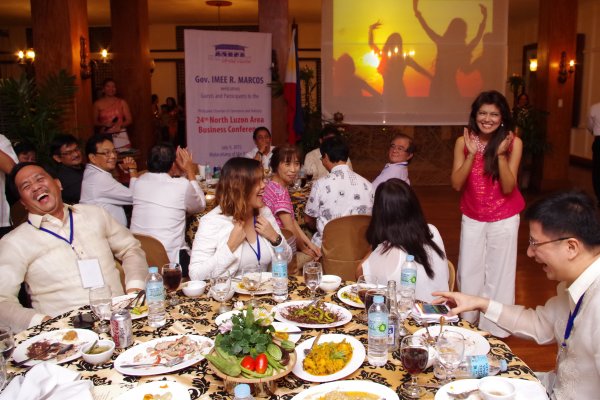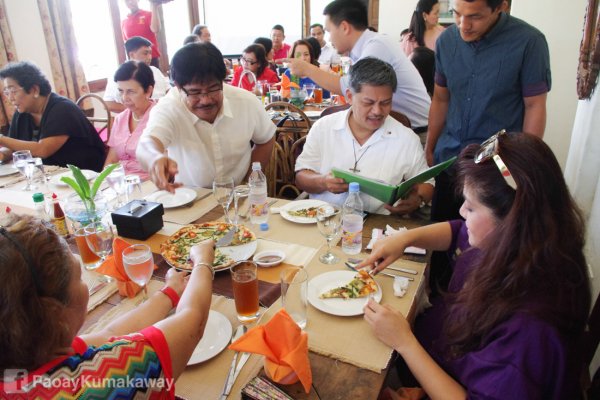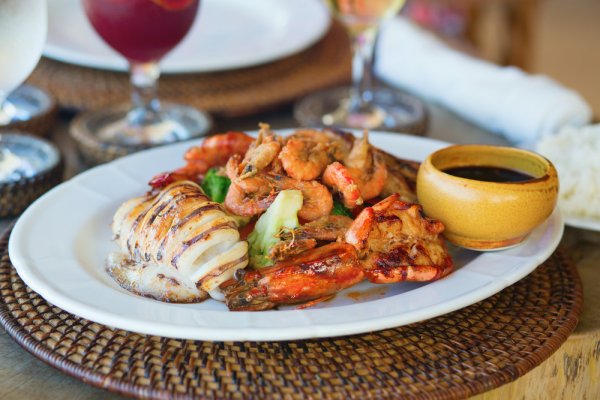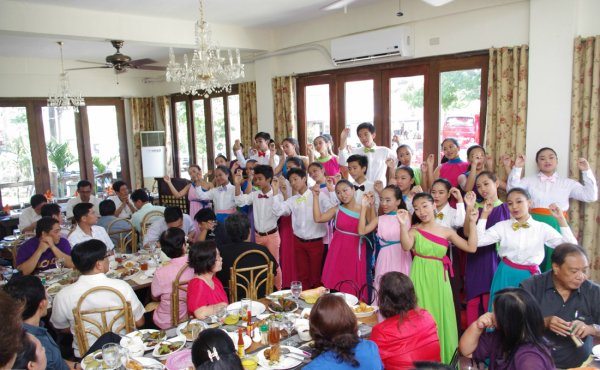Business Culture: Business Entertaining
Activities
Filipinos tend to be cordial hosts. Business entertainment is often used to try to impress visitors and build relationships; therefore, those conducting business in the Philippines should jump at the chance to participate in all after-hours activities. Just as much can be achieved over a meal or at a sporting event as in a more formal meeting, so take advantage of all opportunities.
Business lunches and dinners are typically arranged over the phone and confirmed by a secretary. Meals are often served family style or at buffets. Dishes tend to use animal products either as main ingredients or as flavoring, so vegetarians and vegans may have a hard time finding suitable meal choices. Additionally, visitors should be prepared to eat sour or salty foods, such as dishes that include vinegar, tamarind, or pickled vegetables.
After hours, lavish dinner parties with live entertainment that last for hours are common, while a long list of other activities—sea cruises, sporting events, casino junkets, and nightclubbing, just to name a few—are also possibilities. Karaoke-style parties are a favored pastime for Filipinos, so don't be surprised if you are asked to get up and sing.
Etiquette
If invited to a Filipino home for dinner, it is traditional to bring a gift of sweets or flowers to the host. Avoid bringing chrysanthemums or white lilies, as these are typically used at funerals. Sending a fruit basket after the event is also acceptable, but be careful not to send it before or present it during the event, or else it may be interpreted as meaning you do not think the host will provide sufficient hospitality.
As presentation is important in Filipino culture, wrapping gifts is very important. There are no color restrictions on wrapping paper, and gifts are traditionally not opened when received.
When invited to a large party, arrive 15 to 30 minutes later than the stated start time. Dress well, as you will be judged on how you dress, and if you are meeting your counterpart’s family members, it is important to make a positive impression. Compliment the host on the house, but do not refer to a host’s wife as a “hostess,” as this word has an uncouth meaning in the Philippines.
Be sure to wait before moving into the dining room from another area or helping yourself to food—it’s a good practice to follow the lead of others around you. It is quite typical to have a drink before sitting at the dining table. There may be a seating plan, so wait to be told where to sit. Seating arrangements are very important in Filipino culture, and messing up the order of things could leave you embarrassed or upset the hosts.
If dining out, the person who invites customarily pays for the meal. A service charge is almost always added to a restaurant bill, and tipping is expected throughout the country. It is customary to leave a small tip, somewhere between 5 percent and 15 percent, depending on the perceived quality of service.
Forks and spoons are the typical utensils at the table. Regardless of whether you are left-handed or right-handed, the fork should be held in the left hand and used to guide food into the spoon in your right hand. It is not necessary to either leave food on your plate or finish every bite—this is simply a matter of personal preference.
Within a week after the party or dinner, send a handwritten note thanking the hosts. This will show you are gracious and respectful, and instill a sense of confidence in your hosts.
Article written for World Trade Press by Libby Zay.
Copyright © 1993—2025 World Trade Press. All rights reserved.

 Philippines
Philippines 



